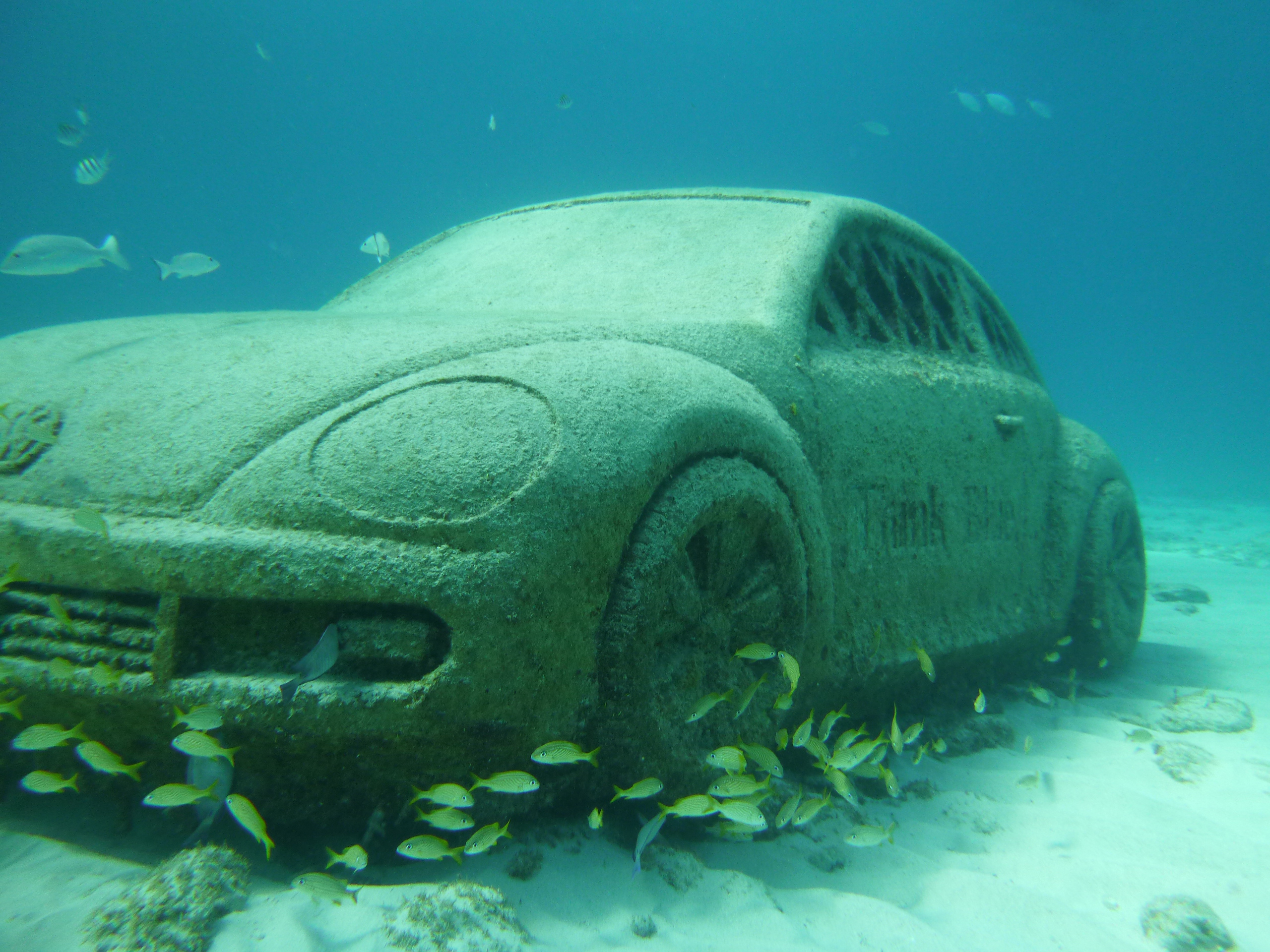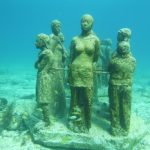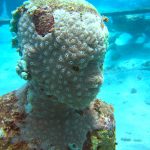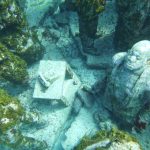Underneath the glistening sun and crashing waves of Cancún, Mexico, lies a hidden treasure—an underwater sculpture museum in Manchones Reef. The sculptures, created by British sculptor Jason deCaires Taylor for the Museo Subacuático de Arte (MUSA), is a collection of four hundred life-size statues modeled after workers, farmers, and other people who live near the reef. The exhibit provides an opportunity for scuba divers, snorkelers, and other tourists to interact with the ocean in a new way, all while preserving the life and natural beauty of the ocean.
Creating an Underwater Museum
The project began in 2006, when the Yucatán Peninsula’s National Marine Park learned about a few of Taylor’s sculptures, which were submerged off the shore of Grenada. These sculptures were meant to become living, breathing parts of the ocean as they grew coral and provided homes for fish in their crevices. Cancún’s coral reefs and tropical fish had attracted snorkelers and scuba divers for years, but both coral and fish were dwindling because of hurricanes and tourists. Taylor’s idea seemed like the perfect solution to revive them. The National Marine Park contacted Taylor to propose their idea, and Taylor accepted.
The statues are made out of special concrete designed to withstand rough conditions on the ocean floor and to provide a perfect breeding ground for underwater plant life. Now MUSA’s underwater sculpture museum featuring Taylor’s life-size, human-like statues is helping to revive the popular reefs surrounding Cancún and Isla Mujeres. Not only does it distract tourists from other reefs that need a chance to regrow, but it also provides additional places for more coral to grow.
Visiting the Museum
You can access the museum by contacting local scuba-diving companies in Cancún. These companies will either take you over the reef on a glass-bottom boat ride or transport you just a short distance from the Manchones Reef to snorkel or scuba dive in the underwater museum itself.
As snorkeling and scuba-diving tourists swim around, over, and even through some of the works of art, they can view Taylor’s pieces from a variety of positions—and have a more personal interaction with the pieces than visitors get with artwork in traditional museums. Amy Thomas of Davidson, North Carolina, explains that snorkeling at the underwater museum “is totally different than swimming over a natural reef that seems to be the ‘usual’ scenery. Snorkeling above the statues is very surreal. It’s almost like you are seeing something you aren’t supposed to.”
While some museums always have the same pieces to see again, the underwater museum is always changing because the longer the sculptures are in the ocean, the longer the coral grows and evolves around it. The art can also change color as the sun rises and sets. In an interview with USA Today (reported on Taylor’s website), the artist says, “The coral applies the paint. The fish supply the atmosphere. The water provides the mood.”
Hidden below the surface of Cancún’s glimmering waves is a whole new world just waiting to be explored. Take a dip and discover it for yourself.






That is so cool! I’m glad that Stowaway is reporting on ecotourism. It’s a nice focus!
This is so fascinating. I love that the environment is such an integral element of these works. The interaction of the works and “museum” space is so unique and powerful!
I would love to go to this place! It’s a fantastic way to help preserve the coral reefs and create an unusual art experience.